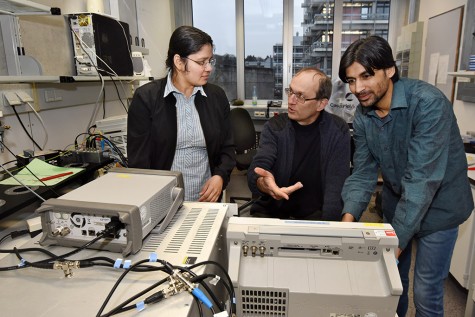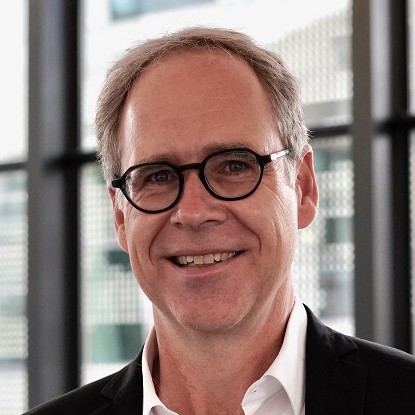Dr. Lalitha Kodumudi Venkataraman
Age: 29
Area of research:
Ferroelectric and piezoelectric materials, lead-free piezoceramics, phase transformations in ferroelectrics, structure solution using whole powder pattern refinement
Name of my University / Research Institute: Indian Institute of Science, Bangalore, India
Research period at the TU Darmstadt:
April 2016 to March 2018 (AvH Research Fellowship for Postdoctoral Researchers)
Questionnaire to the Research Fellow
My field of research is fascinating. To laymen I would explain it in the following comprehensible manner:
What is common to dental scaling tools and the knock sensor in your car? Piezoelectricity! Piezo in Greek means ‘to press’! Piezoelectric materials are charged up (develop charges) when subjected to stress (quite contrary to human nature) and are strained (expand/contract) when shocked by an electric field. My research focuses on understanding the exceptionally good piezoelectric properties of high performance (MPB) materials using tools (diffraction) that can probe their basic building unit (cell). I also work in developing new environment friendly (lead-free) piezoelectric materials.
My most important success in research to date is…
Using high energy synchrotron x-ray diffraction, I have established a direct correlation between the structure and the exceptionally high piezoelectric response of MPB based piezoceramics. Using a comparative study, it is established that the MPB composition exhibits reduced domain switching and lattice strain in comparison with the non-MPB composition and is demonstrated to have additional contributions from field induced phase transformation. The results signify that the origin of large piezoelectric response at the MPB is most likely related to the field induced phase transformations.
I’ve chosen the TU Darmstadt because of…
Professor Jürgen Rödel is one of the leading researchers in the field of piezoceramics. While most researchers focus on the electrical properties of these materials, his research interests includes investigating both the electrical and mechanical response of the materials. He has established several collaborations with leading experts in this field and his research group is well-equipped for experimental investigations of these material systems.
Questionnaire for the host
Guest of: Prof. Dr. Jürgen Rödel
Department: Department of Materials and Earth Sciences
You appreciate in your guest / your guest favourably impressed you by…
Lalitha is scientifically very curious and has an excellent background in crystallography and in particular phase transitions as a function of external influences like temperature and electric field.
In the field of piezoceramics this is very important because these materials show large response to small stimulus. Lalitha is keen to inhale new knowledge and can easily broaden out in new fields. She also gets along well in Germany and adapts well, although she has not yet started her Indian exercise routine of swimming at 6:00, gymnastics at 7:00 and badminton at 7:45. The German indoor pools are also a bit warm for vigorous exercise. However, her English is truly excellent.
How do you, your team and the TU Darmstadt benefit from your guest?
We have a world-wide expert in crystallography and in-situ diffraction studies with hands-on knowledge in several materials systems in our group. Lalitha is collaborating very well with several groups in the department and internationally already. She also helps to integrate the different nationalities in our team.







